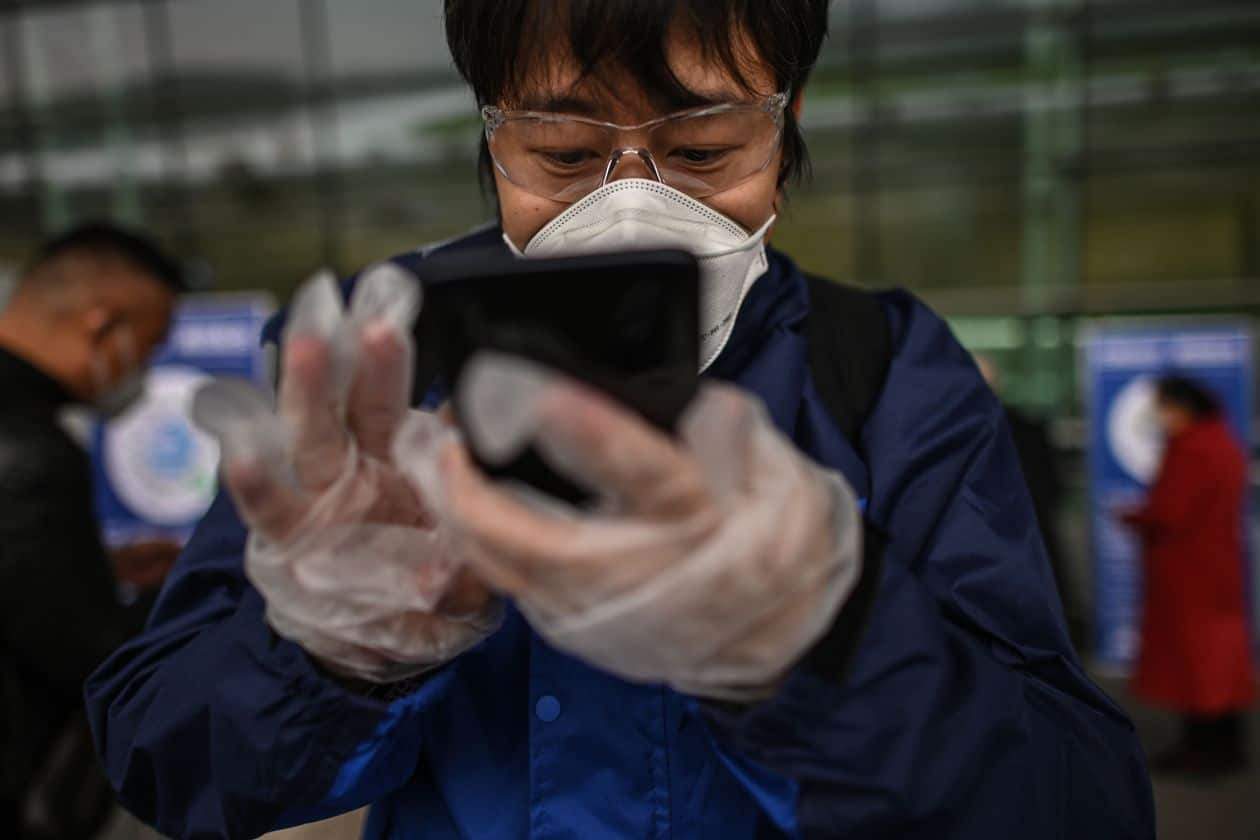Apple, Google Unveil Technology for Covid-19 Exposure Alerts

The tech giants, which make the world’s dominant smartphone operating systems, jointly developed the protocol for apps that can use Bluetooth signals from mobile devices to identify those that have been near each other.
U.S. states including North Dakota, Alabama and South Carolina, as well as 22 countries, have requested and received access to the newly released technology, the companies said.
The technology, which was previously released in beta versions, is intended to complement health workers’ use of conventional means to trace infected people’s contacts. The apps may need a high level of user adoption to effectively track Covid-19 outbreaks, public-health experts say.
Though Apple and Google are providing tools for developers, they aren’t releasing their own exposure-notification apps.
“We’re hoping that public health will find this tool helpful in improving speed and resources,” said a spokeswoman for the companies’ joint effort.
When two devices using apps based on the Apple-Google protocol come near each other, they exchange “keys,” or digital codes, through a Bluetooth signal. An app user who tests positive for Covid-19 can choose to share his or her diagnosis with public-health officials through the app, then upload the keys that his or her app has sent recently. The app will notify users who were exposed, so they can get tested.
This technique may help public-health departments track contact between strangers—a type of interaction that can often elude contact tracers, who must rely on an infected person’s memory to determine possible exposures.
Creating exposure-notification technology is a challenging and unprecedented endeavor, one undertaken by academic researchers and various private companies.
Apple and Google will prohibit apps that use their protocol from collecting a device’s location history. Some public-health agencies are opting not to use the companies’ technology because of that restriction, and instead are building apps that can use GPS location data.
Apple and Google have consulted with public-health agencies including the Centers for Disease Control and Prevention and the Council of State and Territorial Epidemiologists. Earlier this month CDC released guidelines for contact-tracing apps, recommending functionality similar to what Google and Apple have designed.
In response to feedback, the tech giants have chosen to let health agencies customize a number of features, including what degree of proximity and length of exposure constitutes an exposure event. Public-health authorities may also contact exposed users through the app, using contact information that mobile-device users voluntarily provide.
To take advantage of the Apple-Google technology, each state or national government should commission a developer to build its official app.
Photo: Though Apple and Google are providing tools for developers, they aren’t releasing their own exposure-notification apps. - HECTOR RETAMAL/AGENCE FRANCE-PRESSE/GETTY IMAGES




